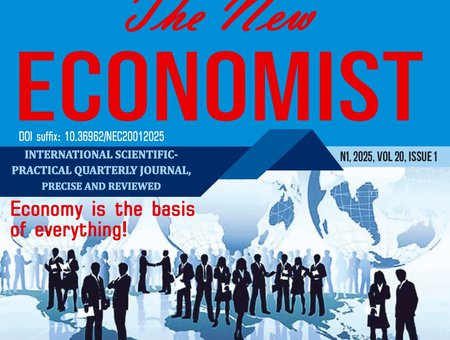THE IMPACT OF SOCIAL MEDIA ON TOURISTS' SATISFACTION (A STUDY USING THE „STIMULUS-ORGANISM-RESPONSE“ MODEL)

Nugzar Todua
Doctor of Economics Science, Professor and Head of Marketing Department, Faculty of Economics and Business, Ivane Javakhishvili Tbilisi State University

Levani Danelia
PhD Student, Faculty of Economics and Business, Ivane Javakhishvili Tbilisi State University
Abstract
The article discusses the importance of using social media in the tourism industry. It is shown that social media applications affect the behavior of tourists. Therefore, researchers pay special attention studying tourists' attitudes towards social media. The paper emphasizes that, in Georgia, like in other countries, the development of the tourism sector is facilitated by the information shared on social media by travelers and service providers. Despite the widespread use of social media in the Georgian tourism industry, the specifics of consumer behavior in this area have been poorly studied. Given this, the purpose of the study was to explore consumer satisfaction with the use of social media in the Georgian tourism sector. This study is based on Uses and Gratifications Theory (UGT), which states that people actively seek out and use media to satisfy certain needs. In the context of tourism, UGT is used to explore how tourists use media to satisfy their travel-related needs. The paper is based on the "stimulus-organism-response" model, which helps us study consumer attitudes towards information posted by tourist destinations on social media. Based on the analysis of the literature, the study variables have been identified. In the paper, the descriptive (independent) variables of “stimulus” are considered to be social media marketing activity, perceived quality of information posted on social media, and perceived trust in information posted on social media. The descriptive (mediating) variable of the “organism” is the attitude towards the information posted on social media, and the “reaction” (dependent variable) is satisfaction with the information posted on social media. Relevant statements have been formulated for the mentioned variables, on the basis of which the research hypotheses have been formulated and a conceptual model of the research has been developed. In order to determine the impact of the named variables on Georgian consumers, a marketing study was conducted, which included the population of Georgia over 18 years of age. A total of 607 respondents from different regions of Georgia were surveyed. The results of the study were processed using the statistical program SPSS 27. The data were collected using the online survey method. Correlation and regression analysis methods were used to process the data. The relationships between the above-mentioned variables have been established. Statistically significant values have been obtained as a result of the analysis, which confirms the reliability of the statements used in the study and confirms the hypotheses developed. The results of the study are useful for tourism organizations that plan to use social media to attract customers and increase their engagement in their activities. The research results have theoretical significance in terms of the use of social media as a marketing communication tool in tourism. Companies can use these results to effectively interact with customers through social media and promote their marketing strategies. The practical implementation of the research results will help managers working in the tourism industry to expand their understanding of social media and actively use it to attract target audiences.
References
- Geostat (2024). Tourism statistics. (in Georgian) https://www.geostat.ge/ka/modules/categories/100/turizmis-statistika
- Abbasi, A. Z., Tsiotsou, R. H., Hussain, K., Rather, R. A., & Ting, D. H. (2023). Investigating the impact of social media images’ value, consumer engagement, and involvement on eWOM of a tourism destination: A transmittal mediation approach. Journal of Retailing and Consumer Services, 71, 1.
- Abdunurova, A., Uspanova, M., Hasan, R., Surapbergenova, Z., & Kudaibergenov, N. (2020). Pre-purchasing and post-purchasing travel behavior on social media: The case of kazakhstan. Journal of Environmental Management and Tourism, 11(6), 1475-1488.
- Agyapong, E., & Yuan, J. (2022). Social media impact on tourism destination decision: Evidence from international students in China. Open Journal of Applied Sciences, 12(12), 2055-2080.
- Ajzen, I. (1989). Attitude, structure and behavior. In A. R. Pratkanis, S. J. Breckler, & A. G. Greenwald (Eds.), Attitude, structure and function (pp. 241–274). Hillsdale, NJ: Laurence Erlbaum Associates.
- Akar, E., & Topçu, B. (2011). An examination of the factors influencing consumers' attitudes toward social media marketing. Journal of internet commerce, 10(1), 35-67.
- Alamsyah, D., Othman, N., Bakri, M., Adjie, A., Salsabila, K., & Syarifuddin, D. (2020). Confirmatory factor analysis of green advertising and its impact on green awareness. Management Science Letters, 10(16), 3899-3906.
- Apil, A. R., Kaynak, E., & Todua, N. (2009). Product Preference Differences of High and Low Ethnocentric Consumers in Georgia. In Proceedings of the 18th World Business Congress „Management Challenges in an Environment of Increasing Regional and Global Concerns“ (pp. 531-539).
- Bruce, E., Shurong, Z., Egala, S. B., Amoah, J., Ying, D., Rui, H., & Lyu, T. (2022). Social media usage and SME firms’ sustainability: An introspective analysis from Ghana. Sustainability, 14(15), 9433.
- Datareportal. (2024). Digital 2024: Georgia. Retrieved from: https://datareportal.com/reports/digital-2024-georgia#:~:text=The%20state%20of%20digital%20in%20Georgia%20in%202024&text=Georgia%20was%20home%20to%202.85,percent%20of%20the%20total%20population.
- El-Said, O. A. (2020). Impact of online reviews on hotel booking intention: The moderating role of brand image, star category, and price. Tourism Management Perspectives, 33, 100604.
- Filieri, R., & McLeay, F. (2014). E-WOM and accommodation: An analysis of the factors that influence travelers’ adoption of information from online reviews. Journal of Travel Research, 53(1), 44–57.
- Filieri, R., Alguezaui, S., & McLeay, F. (2015). Why Do Travelers Trust TripAdvisor? Antecedents of Trust towards Consumer-Generated Media and Its Influence on Recommendation Adoption and Word of Mouth. Tourism Management, 51, 174–85.
- Gamage, T. C., Tajeddini, K., & Tajeddini, O. (2022). Why Chinese travelers use WeChat to make hotel choice decisions: A uses and gratifications theory perspective. Journal of Global Scholars of Marketing Science, 32(2), 285-312.
- Gebreel, O. S. S., & Shuayb, A. (2022). Contribution of social media platforms in tourism promotion. International Journal of Social Science, Education, Communication and Economics (SINOMICS JOURNAL), 1(2), 189–198.
- Heslop, L. A., Papadopoulos, N., & Bourk, M. (1998). An interregional and intercultural perspective on subcultural differences in product evaluations. Canadian Journal of Administrative Sciences/Revue Canadienne des Sciences de l'Administration, 15(2), 113-127.
- Ho, C. T. B., & Gebsombut, N. (2019). Communication factors affecting tourist adoption of social network sites. Sustainability, 11(15), 4198.
- Ho, K. K., & See-To, E. W. (2018). The impact of the uses and gratifications of tourist attraction fan page. Internet Research, 28(3), 587-603.
- Hur, K., Kim, T. T., Karatepe, O. M., & Lee, G. (2017). An exploration of the factors influencing social media continuance usage and information sharing intentions among Korean travellers. Tourism management, 63, 170-178
20. Hussain, T., Wang, D., & Li, B. (2024). Exploring the impact of social media on tourist behavior in rural mountain tourism during the COVID-19 pandemic: The role of perceived risk and community participation. Acta Psychologica, 242, 104113.
21. Jamshidi, D., Rousta, A., & Shafei, R. (2023). Social media destination information features and destination loyalty: does perceived coolness and memorable tourism experiences matter? Current Issues in Tourism, 26(3), 407–428.
22. Jamu, M. E., & Sari, S. P. (2022). The effect of electronic word of mouth on social media and the attraction of bena traditional village tourism on tourist visiting decisions. SENTRALISASI, 11(1), 37-48.
23. Javed, M., Tučková, Z., & Jibril, A. B. (2020). The role of social media on tourists’ behavior: An empirical analysis of millennials from the Czech Republic. Sustainability, 12(18), 7735.
24. Joo, J., & Sang, Y. (2013). Exploring Koreans’ smartphone usage: An integrated model of the technology acceptance model and uses and gratifications theory. Computers in Human Behavior, 29(6), 2512-2518.
25. Katz, E., & Blumler, J. G. (1974). The uses of mass communications: Current perspectives on gratifications research. Sage Annual Reviews of Communication Research, 3.
26. Keelson, S. A., Bruce, E., Egala, S. B., Amoah, J., & Bashiru Jibril, A. (2024). Driving forces of social media and its impact on tourists’ destination decisions: a uses and gratification theory. Cogent Social Sciences, 10(1), 2318878.
27. Keelson, S. A., Bruce, E., Egala, S. B., Amoah, J., & Bashiru Jibril, A. (2024). Driving forces of social media and its impact on tourists’ destination decisions: a uses and gratification theory. Cogent Social Sciences, 10(1), 2318878.
28. Ki, C. W. C., Cuevas, L. M., Chong, S. M., & Lim, H. (2020). Influencer marketing: Social media influencers as human brands attaching to followers and yielding positive marketing results by fulfilling needs. Journal of retailing and consumer services, 55, 102133.
29. Kim, A. J., & Ko, E. (2012). Do social media marketing activities enhance customer equity? An empirical study of luxury fashion brand. Journal of Business research, 65(10), 1480-1486.
30. Kim, M. J., Lee, C. K., & Jung, T. (2020). Exploring consumer behavior in virtual reality tourism using an extended stimulus-organism-response model. Journal of travel research, 59(1), 69-89.
31. Kim, Y. A., & Ahmad, M. A. (2013). Trust, distrust and lack of confidence of users in online social media-sharing communities. Knowledge-Based Systems, 37, 438-450.
32. Kim, Y. J., Chun, J. U., & Song, J. (2009). Investigating the role of attitude in technology acceptance from an attitude strength perspective. International Journal of Information Management, 29(1), 67–77.
33. Krejcie, R. V., & Morgan, D. W. (1970). Determining sample size for research activities. Educational and Psychological Measurement, 30(3), 607-610.
34. Krey, N., tom Dieck, M. C., Wu, S., & Fountoulaki, P. (2023). Exploring the influence of touch points on tourist experiences at crisis impacted destinations. Journal of Travel Research, 62(1), 39-54.
35. Kumar, P., Mishra, J. M., & Rao, Y. V. (2022). Analysing tourism destination promotion through Facebook by Destination Marketing Organizations of India. Current Issues in Tourism, 25(9), 1416-1431.
36. Lam-González, Y. E., León, C. J., & De León, J. (2025). Measuring Tourist Satisfaction with Nautical Destinations: The Effects of Image, Loyalty, and Past Destination Choice. Tourism in Marine Environments, 19(3-4), 215-226.
37. Lee, H., Lee, J., Chung, N., & Koo, C. (2018). Tourists’ happiness: are there smart tourism technology effects?. Asia Pacific Journal of Tourism Research, 23(5), 486-501.
38. Lee, S., Ha, S., & Widdows, R. (2011). Consumer responses to high-technology products: Product attributes, cognition, and emotions. Journal of business research, 64(11), 1195-1200.
39. Lim, Z. W., Yong, Y. C., Tan, C. H., & Chan, M. S. (2024). Impact of Social Media Marketing on Gen Z's Cosmetic Brand Awareness. International Journal of Management, Finance and Accounting, 5(1), 64-84.
40. Lin, K. Y., & Lu, H. P. (2011). Intention to continue using Facebook fan pages from the perspective of social capital theory. Cyberpsychology, Behavior, and Social Networking, 14(10), 565-570.
41. Malarvizhi, C. A., Al Mamun, A., Jayashree, S., Naznen, F., & Abir, T. (2022). Modelling the significance of social media marketing activities, brand equity and loyalty to predict consumers’ willingness to pay premium price for portable tech gadgets. Heliyon, 8(8), e10145.
42. Malhotra, N. (2020). Marketing research: An applied orientation. 7th ed., London: Pearson Education Limited.
43. Marzo, R. R., Jun Chen, H. W., Ahmad, A., Thew, H. Z., Choy, J. S., Ng, C. H., ... & Elsayed, M. E. (2024). The evolving role of social media in enhancing quality of life: a global perspective across 10 countries. Archives of public health, 82(1), 28.
44. Mason, A. N., Narcum, J., & Mason, K. (2021). Social media marketing gains importance after Covid-19. Cogent Business & Management, 8(1), 1870797.
45. McKnight, D. H., & Chervany, N. L. (2001). What trust means in e-commerce customer relationships: An interdisciplinary conceptual typology. International journal of electronic commerce, 6(2), 35-59.
46. Mehrabian, A., & Russell, J.A. (1974). An Approach to Environmental Psychology. The MIT Press: Cambridge, MA, USA.
47. Moorman, C., Zaltman, G., & Deshpande, R. (1992). Relationships between providers and users of market research: The dynamics of trust within and between organizations. Journal of Marketing Research, 29(3), 314–328.
48. Nunnally, J.C. (1967). Psychometric Theory. New York, NY: McGraw-Hill Book Company.
49. Pavlou, P. A., & Fygenson, M. (2006). Understanding and predicting electronic commerce adoption: An extension of the theory of planned behavior. MIS Quarterly, 30(1) 115–143.
50. Pop, R. A., Săplăcan, Z., Dabija, D. C., & Alt, M. A. (2022). The impact of social media influencers on travel decisions: The role of trust in consumer decision journey. Current issues in Tourism, 25(5), 823-843.
51. Prentice, C., & Kadan, M. (2019). The role of airport service quality in airport and destination choice. Journal of Retailing and Consumer Services, 47, 40-48.
52. Qiu, H., Wang, X., Wu, M. Y., Wei, W., Morrison, A. M., & Kelly, C. (2023). The effect of destination source credibility on tourist environmentally responsible behavior: An application of stimulus-organism-response theory. Journal of Sustainable Tourism, 31(8), 1797-1817.
53. Ramadhan, M. M. R. P., & Aprillia, A. (2025). The Mediating Role of Brand Awareness in Social Media Marketing’s Impact on Brand Image. Economics and Business Quarterly Reviews, 8(1), 9-17.
54. Ramesh, V., & Jaunky, V. C. (2021). The tourist experience: Modelling the relationship between tourist satisfaction and destination loyalty. Materials Today: Proceedings, 37, 2284-2289.
55. Senyao, S., & Ha, S. (2022). How social media influences resident participation in rural tourism development: A case study of Tunda in Tibet. Journal of Tourism and Cultural Change, 20(3), 386-405.
56. Silaban, P. H., Chen, W. K., Nababan, T. S., Eunike, I. J., & Silalahi, A. D. K. (2022). How travel vlogs on YouTube influence consumer behavior: A use and gratification perspective and customer engagement. Human Behavior and Emerging Technologies, 2022(1), 4432977.
57. Su, L., Hsu, M. K., & Boostrom Jr, R. E. (2020). From recreation to responsibility: Increasing environmentally responsible behavior in tourism. Journal of Business Research, 109, 557-573.
58. Tang, L., Jang, S., & Morrison, A. (2012). Dual-route communication of destination websites. Tourism Management, 33(1), 38-49.
59. Tang, Z., Warkentin, M., & Wu, L. (2019). Understanding employees’ energy saving behavior from the perspective of stimulus-organism-responses. Resources, Conservation and Recycling, 140, 216-223.
60. Tešin, A., Pivac, T., Besermenji, S., & Obradović, S. (2022). Exploring the influence of Instagram on travel destination choice. The European Journal of Applied Economics, 19(1), 66–80.
61. Todua, N. (2018). Impact of social media marketing on consumer behavior in the Georgian tourism industry. Web of Scholar, 3(5), 11-16.
62. Todua, N., & Dotchviri, T. (2015). On the Marketing Research of consumer prices and inflation process. British Journal of Marketing Studies, 3(2), 48-57.
63. Todua, N., & Jashi, Ch. (2016). Main Aspects of Service Quality in the Hotel Industry of Georgia. In Proceedings of the 4th International Conference on Contemporary Marketing Issues (Heraklion, Greece), pp. 431-435.
64. Tsiotsou, R. H. (2022). Identifying value-creating aspects in luxury hotel services via third-party online reviews: a cross-cultural study. International Journal of Retail & Distribution Management, 50(2), 183-205.
65. Turktarhan, G., & Cicek, O. (2022). 11. Smart tourism destinations and social media analysis. In Handbook on tourism and social media (pp. 139–146). Edward Elgar Publishing.
66. Vojtko, V., Štumpf, P., Rašovská, I., McGrath, R., & Ryglová, K. (2022). Removing uncontrollable factors in benchmarking tourism destination satisfaction. Journal of Travel Research, 61(1), 136-149.
67. Wang, H., & Yan, J. (2022). Effectslu of social media tourism information quality on destination travel intention: Mediation effect of self-congruity and trust. Frontiers in Psychology, 13, 1049149.
68. Wang, W. T., Wang, Y. S., & Liu, E. R. (2016). The stickiness intention of group-buying websites: The integration of the commitment–trust theory and e-commerce success model. Information & Management, 53(5), 625-642.
69. Wang, Y. S. (2008). Assessing e‐commerce systems success: a respecification and validation of the DeLone and McLean model of IS success. Information systems journal, 18(5), 529-557.
The new Economist, No1, 2025, Vol. 20, Issue 1.

07/04/2025
Copyright (c) 2025 Nugzar Todua, Levani Danelia

This work is licensed under a Creative Commons Attribution-NonCommercial-NoDerivatives 4.0 International License.
